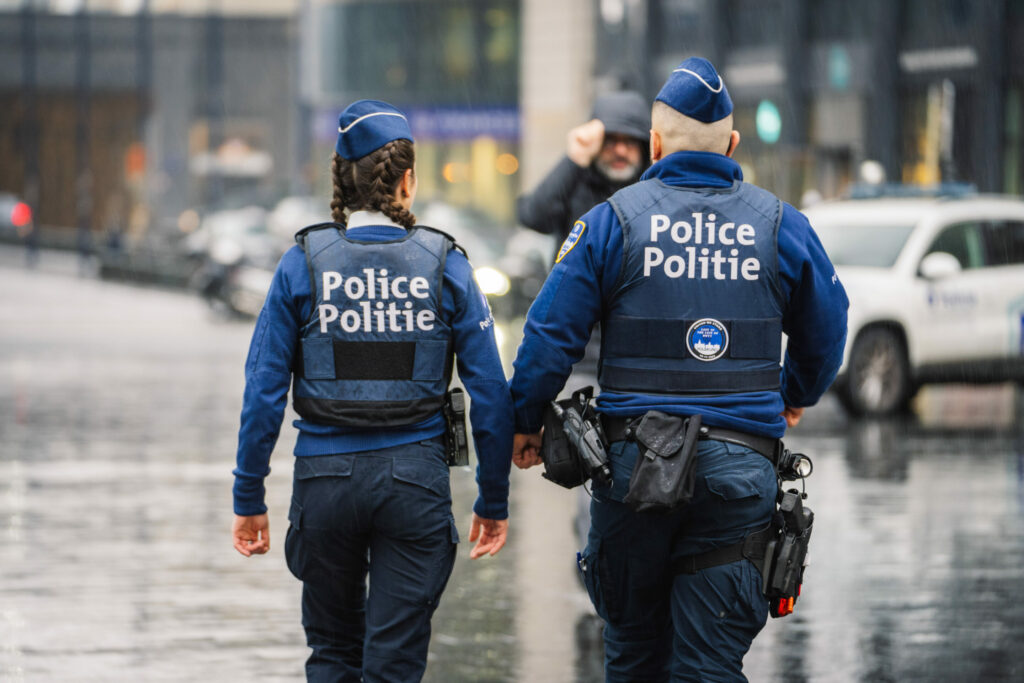In the aftermath of the shootings in Brussels, which reportedly are connected to the international drug trade, experts, policymakers and observers all seem to agree that the merger of the six police zones in Brussels would be a major step forward.
Especially the unity of command that would be created after such a merger is considered to be a key asset to law enforcement agencies dealing with violent crime. Indeed, the current security architecture and related policies are very fragmented – especially so in Brussels. Some commentators and journalists even go as far as to suggest that the merger of the police zones in Brussels is ‘the’ solution to drug-related crime.
Mayors and chiefs of police in Brussels, however, are not as convinced and the fact the Federal Government has included the merger of the six police zones in the coalition agreement can be read as a top-down decision by local decision-makers.
Don’t get me wrong, I am in favour of merging police zones in Flanders and Wallonia: why not in Brussels as well? The difference is that only in Brussels is this merger being forcefully imposed, while the other 172 police zones happily continue to exist. 172 police zones where some have more police capacity than others.
Where one police chief loses sleep at night over whether the only patrol can be guaranteed if someone falls ill, and another police chief hopes that no hemp plantation or synthetic drug lab is found, which would temporarily close the doors to the public.
Research conducted in recent years has shown that there are economies of scale to be gained from a merger: creating specialisation and improving continuity in service delivery both in the field and in the back office. The unity of command and the anchoring of new structures in a new organisation, eliminating the voluntariness that characterises some collaborations, are also additional advantages.
But it also means an immediate change process that will weigh on the organisation for about five years. Five years during which the focus will be more internally than externally oriented, and during which numerous uncertainties will arise, not least for the employees themselves.
At what cost?
But even if the unified zone succeeds, it still needs to be financed. Who will finance the unified police zone? Today, primarily the 19 Brussels municipalities, which complain about federal underfunding of these police zones. Moreover, will we evolve towards one police zone, with one police chief who is (administratively and hierarchically) managed by a police board of 19 mayors? 19 mayors, each wanting their say.
19 mayors from 19 Brussels municipalities that likely differ socioeconomically, demographically, infrastructurally, and criminologically, and thus will have different needs and priorities? There is a reason why the Belgian police have evolved into a system of an integrated police and not a national police.
The local autonomy of municipalities was to be guaranteed. This was something the mayors insisted upon: they wanted to remain responsible for public order and safety in their municipalities and help direct the police towards addressing societal issues. From an integrated perspective, societal safety and security is best organised at a local level and the mayor, indeed, has a number of instruments to contribute to a more safe and secure environment through housing, public centres for welfare and social services, for example.
Perhaps we could consider merging municipalities, as we have long encouraged in Flanders in the context of local governance? Yes, cities and municipalities also have a role to play in security policy. Think, for example, of administrative enforcement, which is conspicuously absent in the 19 Brussels municipalities.
Can one police chief work with the direction of 19 mayors, or do we want to place the management at the level of the Brussels Capital Region? Who pays and decides then? In short, there remain a number of unanswered questions. What is the appropriate scale for effective local police service? We might end up with three police zones, maybe two, or who knows, one.
What is the Brussels reality regarding police service? There has not yet been a satisfactory answer formulated. Simply stating that a merger is the solution to the many security problems encountered in Brussels is unfounded. It is our security architecture, the manner of management, financing, and evaluation that needs revision, a re-evaluation. If we collectively lack the courage to review and question the system, then we will not succeed in formulating an answer to the security problems posed by polarisation, cybercrime, and organised crime.
Sections of this piece were published last week in Dutch-language media. Jelle Janssens is an associate professor of criminology at Ghent University. He is regularly cited by national media channels about the evolution of criminal activity in Belgium.

